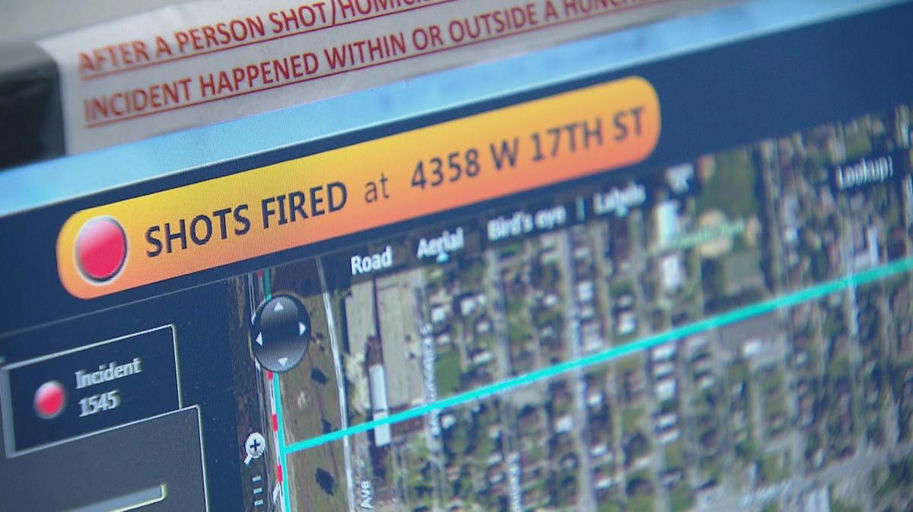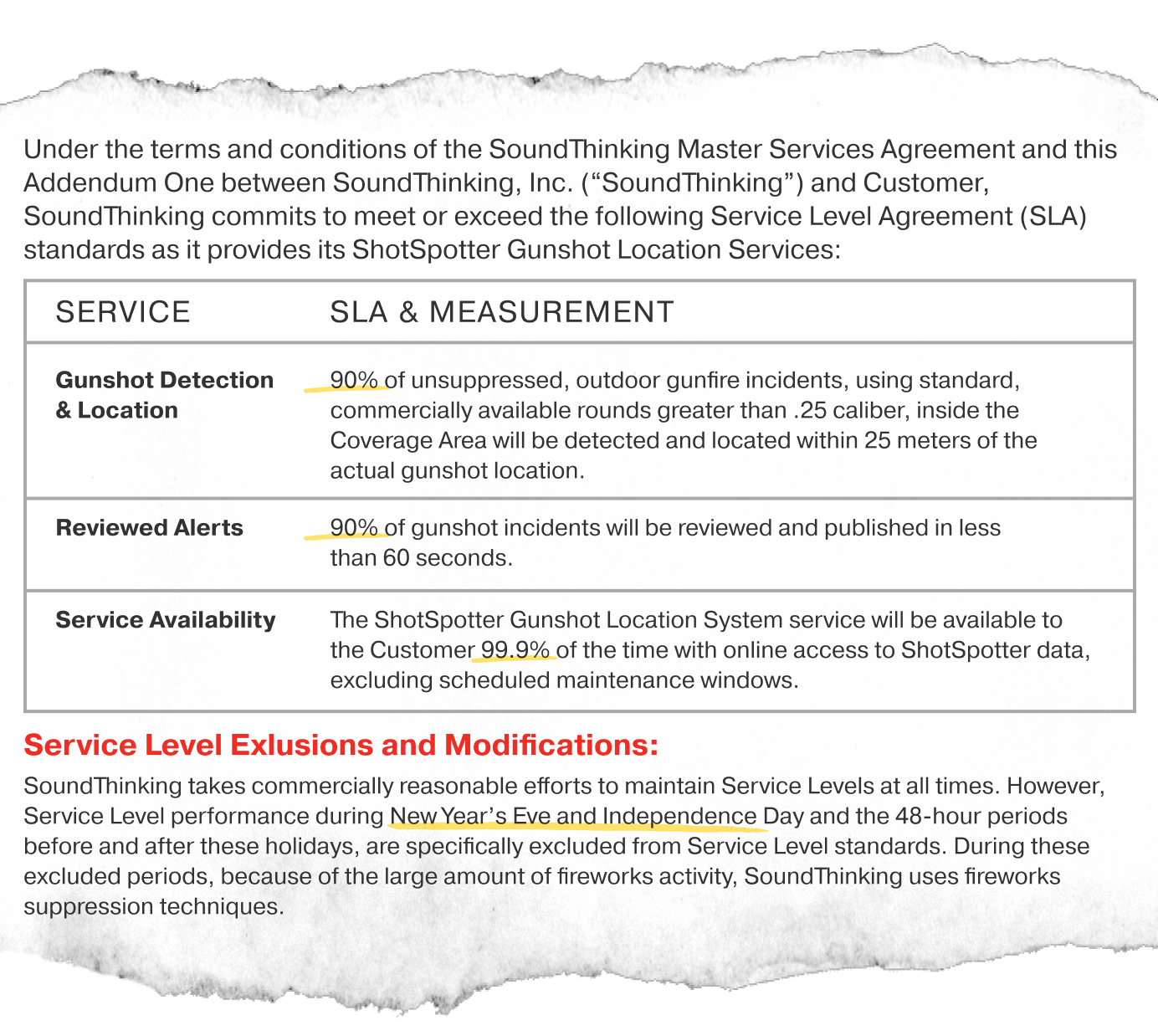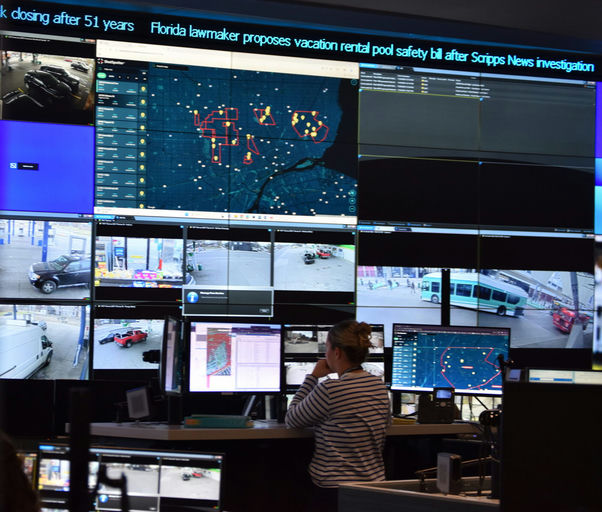
ShotSpotter has been deployed to 100+ cities and counties.
SoundThinking, Inc. is paid by cities to set up microphones in secret locations throughout neighborhoods, using triangulation technology to locate loud, impulsive noises.
- Step 1 A loud noise is detected by ShotSpotter sensors.
- Step 2The recording is sent to a ShotSpotter technician, who often has no scientific background or expertise, who tries to determine whether the noise is a gunshot.
- Step 3 If the technician judges the sound to be a gunshot, the general location of the sound is published to local dispatch and/or police officers in the coverage area.
ShotSpotter has never been independently validated/tested for its ability to accurately distinguish among various loud noises. Without scientific testing, we don’t know how many impulsive sounds are incorrectly classified as gunfire.

